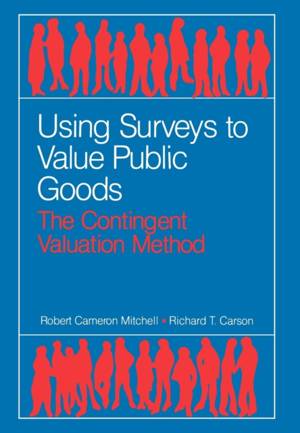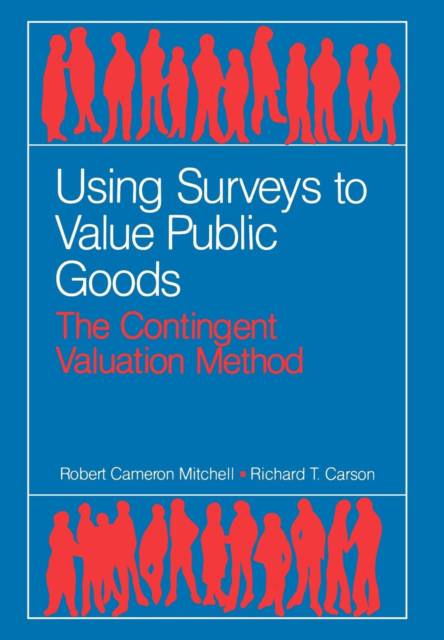
Je cadeautjes zeker op tijd in huis hebben voor de feestdagen? Kom langs in onze winkels en vind het perfecte geschenk!
- Afhalen na 1 uur in een winkel met voorraad
- Gratis thuislevering in België vanaf € 30
- Ruim aanbod met 7 miljoen producten
Je cadeautjes zeker op tijd in huis hebben voor de feestdagen? Kom langs in onze winkels en vind het perfecte geschenk!
- Afhalen na 1 uur in een winkel met voorraad
- Gratis thuislevering in België vanaf € 30
- Ruim aanbod met 7 miljoen producten
Zoeken
Using Surveys to Value Public Goods
The Contingent Valuation Method
Robert Cameron Mitchell, Richard T Carson
€ 274,95
+ 549 punten
Omschrijving
Economists and others have long believed that by balancing the costs of such public goods as air quality and wilderness areas against their benefits, informed policy choices can be made. But the problem of putting a dollar value on cleaner air or water and other goods not sold in the marketplace has been a major stumbling block. Mitchell and Carson argue that at this time the contingent valuation (CV) method offers the most promising approach for determining public willingness to pay for many public goods--an approach likely to succeed, if used carefully, where other methods may fail. First Published in 1989. Routledge is an imprint of Taylor & Francis, an informa company.
Specificaties
Betrokkenen
- Auteur(s):
- Uitgeverij:
Inhoud
- Aantal bladzijden:
- 482
- Taal:
- Engels
- Reeks:
Eigenschappen
- Productcode (EAN):
- 9780915707324
- Verschijningsdatum:
- 1/03/1989
- Uitvoering:
- Hardcover
- Formaat:
- Genaaid
- Afmetingen:
- 163 mm x 242 mm
- Gewicht:
- 830 g

Alleen bij Standaard Boekhandel
+ 549 punten op je klantenkaart van Standaard Boekhandel
Beoordelingen
We publiceren alleen reviews die voldoen aan de voorwaarden voor reviews. Bekijk onze voorwaarden voor reviews.









